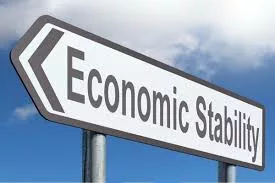Nigeria stands at a critical juncture in its economic journey, where effective monetary and fiscal policies are crucial for achieving stability and sustainable growth. With a diverse economy and vast potential, the country needs well-calibrated strategies to navigate the challenges it faces.
The Central Bank of Nigeria (CBN) plays a pivotal role in shaping the country’s monetary policy. In recent years, it has implemented measures to stabilize inflation, maintain exchange rate stability, and promote financial inclusion. However, challenges persist, and further reforms are necessary.
To effectively combat inflation, the CBN must strike a delicate balance between price stability and stimulating economic growth. The focus should be on employing a mix of targeted monetary tools, including interest rates, reserve requirements, and open market operations. These measures can help manage inflationary pressures while encouraging investment and productivity.
Additionally, the CBN should foster transparency and independence in its decision-making processes. Clear communication of policy objectives and implementation strategies will enhance market confidence and ensure stakeholders are well-informed. Collaboration with relevant stakeholders, including fiscal authorities, is also essential to reinforce the effectiveness of monetary policy.
Also, Nigeria’s fiscal policy plays a crucial role in addressing structural challenges, reducing dependence on oil revenues, and promoting inclusive growth. A prudent fiscal approach is needed to ensure the efficient allocation of resources, enhance public service delivery, and reduce wasteful spending.
Diversification of revenue sources should be a top priority for the Tinubu government. Over-reliance on oil revenues leaves the economy vulnerable to price fluctuations. Encouraging non-oil sectors such as agriculture, manufacturing, and services through targeted incentives and investment in infrastructure can bolster revenue generation and create employment opportunities.
Furthermore, fiscal discipline and transparency are vital in managing public finances. Effective budgetary planning, implementation, and monitoring mechanisms must be in place to prevent leakages and ensure funds are allocated where they are most needed. Regular audits and strict enforcement of financial regulations can help restore public trust and confidence in the government’s fiscal management.
For optimal results, Nigeria’s monetary and fiscal policies must work in harmony. Close coordination between the CBN and fiscal authorities is essential to avoid conflicting objectives and ensure policy coherence. Regular consultations and information sharing can help align strategies, address emerging challenges, and maximize the impact of policy interventions.
A unified approach to managing the exchange rate is particularly crucial. A flexible exchange rate regime that reflects market forces can promote export competitiveness and attract foreign investments. Collaboration between the CBN and fiscal authorities to develop export-oriented policies and remove barriers to trade will foster economic diversification and resilience.
Nigeria’s monetary and fiscal policies hold the key to unlocking its economic potential and ensuring long-term stability. A well-calibrated monetary policy that effectively manages inflation and fosters transparency, combined with a prudent fiscal policy that promotes revenue diversification and fiscal discipline, will pave the way for sustainable growth.
Close coordination and collaboration between the CBN and fiscal authorities are imperative to achieve policy coherence. By implementing these measures, Nigeria can create an enabling environment for businesses, attract investments, and uplift the standard of living for its citizens.
The path to economic stability may be challenging, but with prudent monetary and fiscal policies, Nigeria can navigate the hurdles and emerge as a resilient and prosperous nation. It is crucial for policymakers to seize this opportunity and steer the country toward a brighter future.





